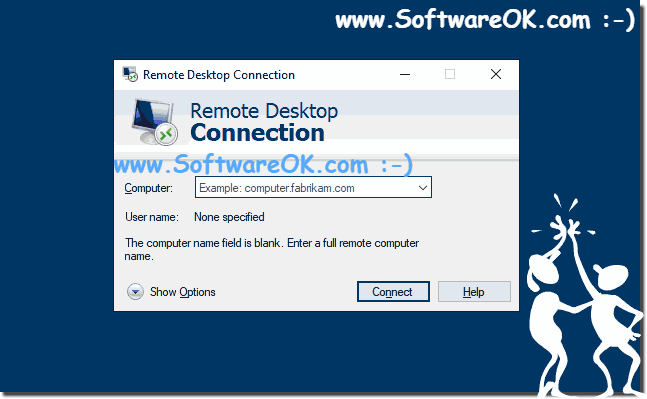- Rdp Selected Monitors
- Microsoft Mstsc Console
- Windows Remote Desktop Connection Manager
- Microsoft Remote Desktop Mstsc
The Microsoft Security Response Center is part of the defender community and on the front line of security response evolution. For over twenty years, we have been engaged with security researchers working to protect customers and the broader ecosystem. On your local Windows 10 PC: In the search box on the taskbar, type Remote Desktop Connection, and then select Remote Desktop Connection. In Remote Desktop Connection, type the name of the PC you want to connect to (from Step 1), and then select Connect.
Applies to: Windows 10, Windows 8.1, Windows Server 2019, Windows Server 2016, Windows Server 2012 R2
We're often asked how the different Remote Desktop clients compare to each other. Do they all do the same thing? Here are the answers to those questions.
Redirection support
The following tables compare support for device and other redirections across the different clients. These tables cover the redirections that you can access once in a remote session.
If you remote into your personal desktop, there are additional redirections that you can configure in the Additional Settings for the session. If your remote desktop or apps are managed by your organization, your admin can enable or disable redirections through Group Policy settings or RDP properties.
Input redirection
| Redirection | Windows Inbox (MSTSC) | Windows Desktop (MSRDC) | Microsoft Store client (URDC) | Android | iOS | macOS | Web client |
|---|---|---|---|---|---|---|---|
| Keyboard | X | X | X | X | X | X | X |
| Mouse | X | X | X | X | X* | X | X |
| Touch | X | X | X | X | X | X (except IE) | |
| Pen | X | X | X (as touch) | X (as touch) |
*View the list of supported input devices for the Remote Desktop iOS client.
Port redirection
| Redirection | Windows Inbox (MSTSC) | Windows Desktop (MSRDC) | Microsoft Store client (URDC) | Android | iOS | macOS | Web client |
|---|---|---|---|---|---|---|---|
| Serial port | X | X | |||||
| USB | X | X |
When you enable USB port redirection, any USB devices attached to the USB port are automatically recognized in the remote session.
Other redirection (devices, etc.)
| Redirection | Windows Inbox (MSTSC) | Windows Desktop (MSRDC) | Microsoft Store client (URDC) | Android | iOS | macOS | Web client |
|---|---|---|---|---|---|---|---|
| Cameras | X | X | X | X | |||
| Clipboard | X | X | X | Text | Text, images | X | text |
| Local drive/storage | X | X | X | X | X | ||
| Location | X | X | |||||
| Microphones | X | X | X | X | X | X | |
| Printers | X | X | X (CUPS only) | PDF print | |||
| Scanners | X | X | |||||
| Smart Cards | X | X | X (Windows logon not supported) | ||||
| Speakers | X | X | X | X | X | X | X (except IE) |
*For printer redirection - the macOS app supports the Publisher Imagesetter printer driver by default. They do not support redirecting native printer drivers.
Other resources
If you're looking for feature comparisons, check out Compare the clients: features.
-->
Applies to: Windows Server (Semi-Annual Channel), Windows Server 2019, Windows Server 2016, Windows Server 2012 R2, Windows Server 2012
Creates connections to Remote Desktop Session Host servers or other remote computers, edits an existing Remote Desktop Connection (.rdp) configuration file, and migrates legacy connection files that were created with Client Connection Manager to new .rdp connection files.
Syntax
Parameters
| Parameter | Description |
|---|---|
<connectionfile> | Specifies the name of an .rdp file for the connection. |
/v:<server>[:<port>] | Specifies the remote computer and, optionally, the port number to which you want to connect. |
| /admin | Connects you to a session for administering the server. |
| /f | Starts Remote Desktop Connection in full-screen mode. |
/w:<width> | Specifies the width of the Remote Desktop window. |
/h:<height> | Specifies the height of the Remote Desktop window. |
| /public | Runs Remote Desktop in public mode. In public mode, passwords and bitmaps aren't cached. |
| /span | Matches the Remote Desktop width and height with the local virtual desktop, spanning across multiple monitors if necessary. |
/edit <connectionfile> | Opens the specified .rdp file for editing. |
| /migrate | Migrates legacy connection files that were created with Client Connection Manager to new .rdp connection files. |
| /? | Displays help at the command prompt. |
Remarks
Rdp Selected Monitors
Todoist google assistant. Default.rdp is stored for each user as a hidden file in the user's Documents folder.
User created .rdp files are saved by default in the user's Documents Dr cleaner mac free download. folder, but can be saved anywhere.
To span across monitors, the monitors must use the same resolution and must be aligned horizontally (that is, side-by-side). There is currently no support for spanning multiple monitors vertically on the client system.
Examples
To connect to a session in full-screen mode, type: How to clean my computer storage.
or
Microsoft Mstsc Console
To assign width/height, type:
Windows Remote Desktop Connection Manager
To open a file called filename.rdp for editing, type:
Microsoft Remote Desktop Mstsc
Additional References
